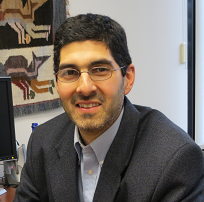Thank you to all who attended the 2023 symposium on Near-Death Experience!
Recordings of the lectures now are available.

Charlotte Martial, PhD
Impact of near-death experience research on models of consciousness

Jimo Borjigin, PhD
The biological paradox

Basil Eldadah, MD, PhD
Paradoxical Lucidity: Findings from an NIA-Supported Initiative
About the event
Near-death experience (NDE) has captivated humanity throughout history. As mortal beings, we are bound to confront the end of life eventually, and the way we or our loved ones pass away holds great significance for many. NDE encompasses a broad spectrum of experiences, occurring when individuals are objectively on the verge of death or when they subjectively believe they are. These experiences, reported across diverse cultural and religious backgrounds, are characterized by a heightened sense of lucidity and realism. They challenge the notion that consciousness dissipates when the brain ceases functioning, as NDEs often involve a state of internal awareness during an otherwise unresponsive condition.
Traditionally, the moment of death was believed to be an abrupt termination of all cerebral processes. However, NDEs present a perplexing biological paradox that defies our fundamental understanding of the dying brain, which is commonly perceived as nonfunctioning under such circumstances. Many proponents argue that NDEs offer evidence for the mind’s separation or independence from the body and brain, suggesting the possibility of an afterlife. Yet, investigations into the neurological aspects of NDEs suggest that specific brain mechanisms may be implicated in these experiences. Consequently, neurologists and cognitive scientists are now delving into the study of consciousness and its functional and neural mechanisms within specific regions of the brain.
It is plausible that the dying process could reactivate the human brain, giving rise to NDEs. Conscious awareness, as reported during NDEs, may occur when there is residual brain electrical activity following cardiac arrest. Thus, NDEs offer a unique opportunity to explore the neural underpinnings of consciousness during an unresponsive state. By unraveling the mysteries of NDEs, researchers seek to shed light on the nature of consciousness and its intricate relationship with the brain, challenging our current understanding of life, death, and the boundaries of human existence.

